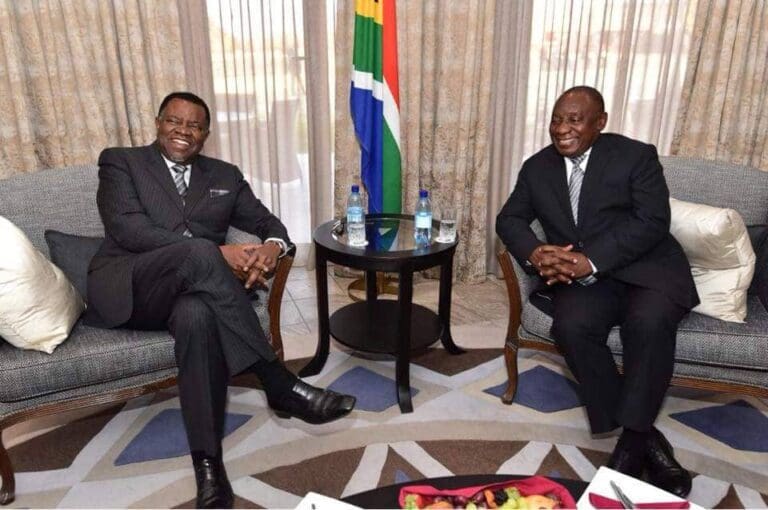APA-Pretoria (South Africa) The ongoing conflict between Russia and Ukraine “has exposed the frailties of the international system of governance” and gives credence to calls for an urgent review of the United Nations configuration, South Africa’s President Cyril Ramaphosa said on Thursday.
Speaking on the sidelines of a one-day state visit by Namibian President Hage Geingob, Ramaphosa reiterated that both South Africa and Namibia were of the view that the Russia-Ukraine conflict should resolved through dialogue which should be mediated by the UN.
“South Africa, like Namibia, maintains that the United Nations and the office of the Secretary-General should play an active role in resolving this conflict,” Ramaphosa said.
He added: “We also agree that the UN in its current configuration needs to be more responsive to the needs and aspirations of the majority of the world’s people.”
The Russia-Ukraine conflict has been raging since February 2022 and has split global opinion, with most African and other developing countries preferring dialogue to resolve the crisis while rich nations have been pouring funds to assist Ukraine to fend off Russian attacks.
Ramaphosa also criticised the lethargic response by global powers to the contentious issue of Palestine, saying South Africa and Namibia “reaffirm our support for the Palestinian cause and for the two-state solution.”
“We must step up our efforts to change the design of multilateral systems of governance.”
Ramaphosa and Geingob met at Pretoria’s Union Buildings on Thursday to solidify bilateral relations between the southern African neighbours.
They were expected to also discuss regional and continental issues, including the Islamic State-led insurgency in Mozambique and implementation of the African Continental Free Trade Area.
Namibia is one of South Africa’s main trading partners, with Pretoria importing merchandise valued at more than R16.1 billion (about US$884 million) from Namibia in 2022, according to official figures.
South Africa exported goods valued at R56.5 billion to Namibia during the same period.
JN/APA


